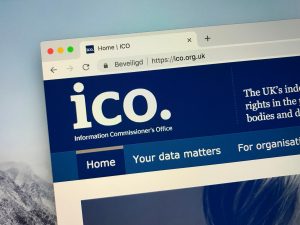If you are a victim of a data protection failure involving your image, check out our current group actions to see if we are running a claim related to that specific breach.
Images and videos are protected under GDPR if they identify an individual, directly or indirectly.
This means that, if images and videos of individuals are collected and processed by an organisation, they have a legal obligation to keep them safe and secure. This includes photographs, CCTV footage, and any other visual images.
If an organisation fails to do so and your images are breached, it can have serious consequences.
For example, images and videos that are published or shared without your consent, could lead to embarrassment, reputational damage, or invasion of privacy. What’s more, if personal identification details are associated with the breached images or videos, malicious actors could exploit this information for identity theft or fraudulent purposes.
KP Law is a group action law firm. With a group action claim, you and the other victims join together and fight to get compensation. Group actions can be a powerful tool and can have a bigger impact than a single claim.
If you are a victim of a data protection failure involving your image, check out our current group actions to see if we are running a claim related to that specific breach.
If you are involved in a potential group action not listed below, please contact us and tell us about it! Where enough people come forward, we may launch a new claim.
We do not take on individual cases.
Don’t let the fear of costs stop you getting the justice you deserve. Contact us today and let us fight for you.
Intimate image abuse, otherwise known as ‘revenge porn’, occurs when a spurned partner takes revenge by posting intimate sexual images and videos online. In some cases, it is almost impossible for victims to completely erase their private photos and videos from the Internet, even if removed from the site where they were initially shared.
Revenge porn is illegal in England and Wales and is punishable by up to two years in prison. Despite this, thousands of revenge porn pictures and videos are still freely shared online.
Our data protection experts have identified an unused weapon in the legal armoury against image-based sexual abuse. Under the UK GDPR, photographs and videos can constitute personal data. As such, any sites that share this personal data must have consent from all parties.
This is clearly not happening, and we believe that there should be consequences for those businesses that enable intimate image abuse. As such, we make GDPR claims against the platforms profiting from this crime.
As well as fast-tracking an individual’s legal ‘Right to be Forgotten’ – which will force platforms to remove illegally shared intimate images – we are also seeking financial damages for the emotional and reputational damage suffered by victims.
We are one of the most experienced multi-claimant law firms in the UK.
We represent clients in group actions with innovation, resources, and expertise.
We work with expert barristers to ensure you get the very best level of legal support available.
We have all the resources and global expertise necessary to take on complicated cases and win.
We have offices in London, Liverpool, Manchester, and Birmingham, and the technology to provide a nationwide service to clients across England & Wales.
We use technology to deliver a better legal experience to our clients.
We work on a no-win, no-fee basis.
We make the process straightforward and hassle-free.
While each case is judged on its own merits, there are some things we would typically look for when it comes to when claiming compensation following a data breach, cybercrime or other GDPR violation:
With stolen data, cybercriminals can make purchases using your bank and credit cards, apply for credit in your name, set up fraudulent bank accounts and access your existing online accounts.
GDPR failures, cybercrime and data breaches can have a significant impact on you, both mentally and physically. They can cause or exacerbate anxiety, stress and other psychological conditions.

The Information Commissioner’s Office (ICO) has launched a joint investigation into the 23andMe data breach with the Office of the Privacy Commissioner of Canada (OPC).

If you are an Arnold Clark customer, you could be eligible to join our action and get compensation for the Arnold Clark data breach.

Focusing on the work of the Revenge Porn Helpline, a new report looks at what can happen when someone uploads private, often sexual, content online without consent.
KP Law has some of the most skilled data breach lawyers in England and Wales. Here are just some of our success stories.

KP Law is a founding member of the Collective Redress Lawyers Association (CORLA). CORLA aims to improve access to justice for claimants by way of collective redress.